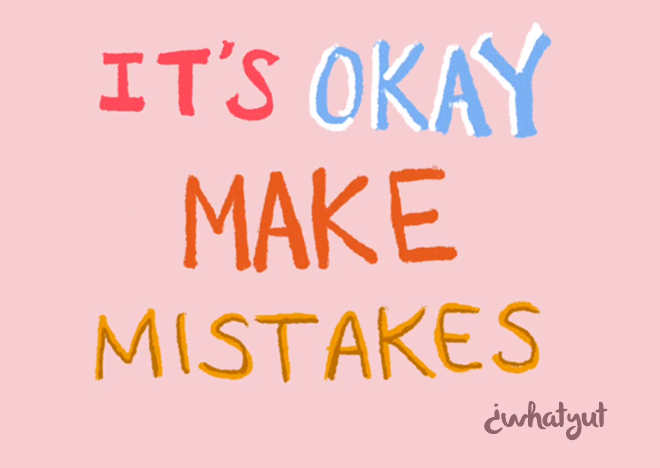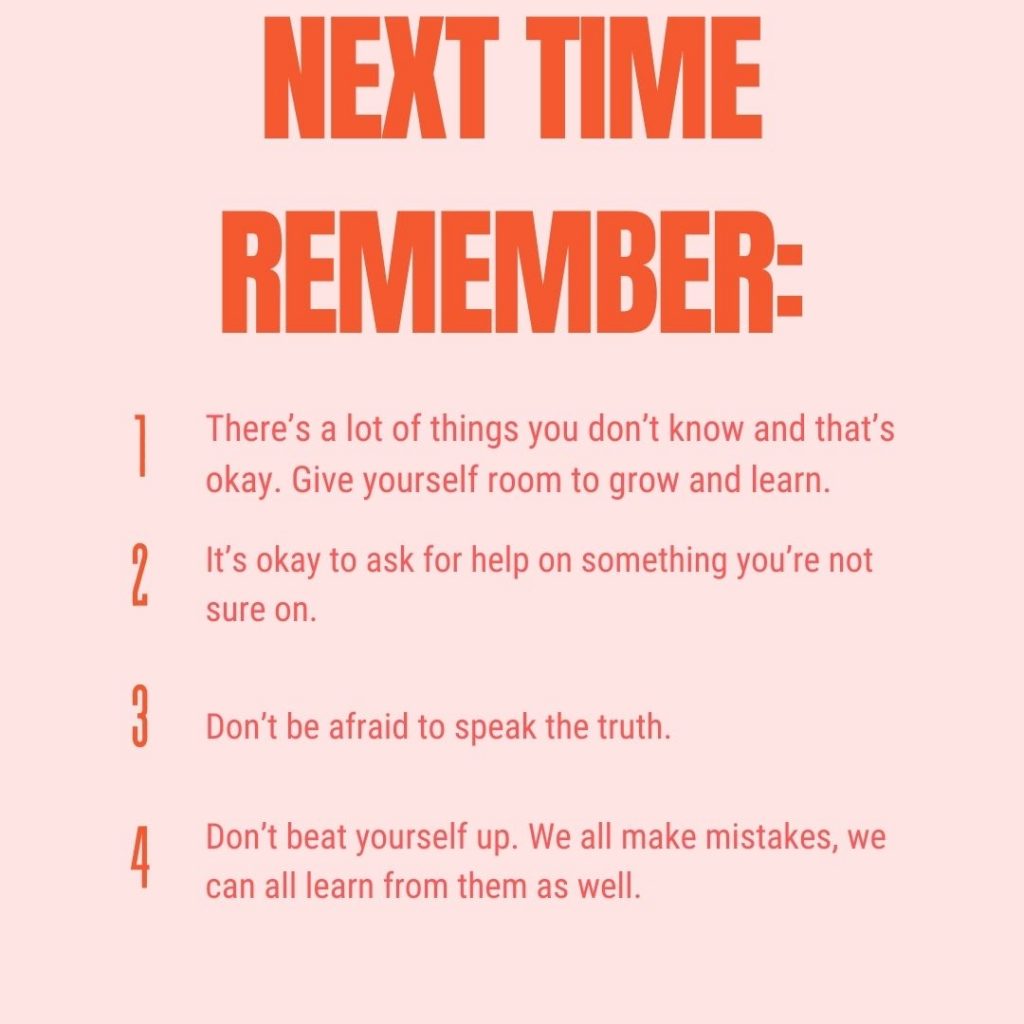We all make mistakes in many different ways. Maybe you laid into your significant other over something insignificant, forgot to text a friend back about plans or made a glaring typo in a super important work memo.
Even worse, instead of addressing our mistake head-on, apologizing in an instant, and remedying the situation, many of us do the opposite. We do nothing. We ignore it. We get defensive. Sometimes we even blame the other person. We say he or she is “too sensitive,” or we tell ourselves we’re right and the other person is wrong because we’re too scared to own our mistakes.
What to do when you make a mistake?
1. Own Your Mistakes: You can’t learn anything from a mistake until you admit that you’ve made it. So, take a deep breath and admit to yours, and then take ownership of it. Inform those who need to know, apologize, and tell them that you’re working on a solution. Saying “sorry” takes courage, but it’s far better to come clean than to hide your error or, worse, to blame others for it
2. Don’t Beat Yourself Up: Once you have made a sincere apology that checks those three boxes, relax. We all make mistakes. We will continue to make mistakes as long as we live. But it’s how we handle them that counts. Being honest, owning up, and having a genuine intention not to repeat the mistake is the very best you can do. Let this bring you peace. Apologize sincerely, then surrender the rest. Exhale!
3. Reframe the Error: How you view your mistakes determines the way that you react to them, and what you do next.
Chances are, you’ll view your error in a purely negative light for as long as any initial shock and discomfort about it persist. But, if you can reframe your mistake as an opportunity to learn, you will motivate yourself to become more knowledgeable and resilient.

When you’ve acknowledged your mistake, think about what you could do to prevent it from happening again. For example, if you didn’t follow a process properly, consider introducing a more robust checklist or a clearer process document. Stop beating yourself up, pause for a moment to reflect, and start thinking about how you can gain from the situation.
3. Analyze Your Mistake: Next, you need to analyze your mistake honestly and objectively. Ask yourself the following questions:
- What was I trying to do?
- What went wrong?
- When did it go wrong?
- Why did it go wrong?
Mistakes happen. We all make them, it is part of what makes us human. How you react and respond to mistakes is something that shows your character. It is common for many of us to instantly begin to beat ourselves up over our mistakes, fixating on the lack of perfectionism. But is this truly a great, or even healthy way to react to making a mistake? Rather than looking at mistakes as a strictly negative thing, look at them as opportunities. What these opportunities are, are ultimately up to you, but they’re endless.
- Mistakes force you to look at the present moment and see why you made the mistake.
- Mistakes can also mean a time for reflection and growth. This reflection can be on ourselves – how it makes us feel, what we could do differently, what we have learned. This reflection can also be a reflection on others – how does this affect them, how does it make them feel? From this reflection, one can look at things differently and expand one’s perspective.
- Mistakes also force you to be honest with yourself. This isn’t something we want to do or often do, except for when we are faced with a mistake. We must think about what we did and why it happened.
- Reflecting on your mistake motivates you to do better. This can include becoming a more efficient planner and being patient with yourself and others to avoid the same mistakes.
- With all of this honest reflection and growth, one begins to become their ideal version of themself. Mistakes allow you to build character and realize that you are human and make mistakes. In order to change these mistakes, you must change yourself.
- Mistakes remind you that you do not deserve or are entitled to everything that comes your way. You gain a sense of humility through understanding that you may not excel or be the best at everything. It is a reminder that you have flaws.
- Lastly, mistakes hold you accountable. One must take ownership of their mistakes, as it is hard to work your way out of them. By taking ownership, you become a stronger version of yourself and that furthers the growth you have already made

So the next time you make a mistake, catch yourself before you start down the long road of “what if’s” and extreme self-criticism. Instead, try to remember the gifts that mistakes bring you and what you can do to become the best version of yourself from this mistake. You are not your mistakes, but you are what you do with them. You have the power to change the way you view mistakes and the chances of them happening again.
If you are struggling with self-criticism or allowing yourself to make mistakes, it may help to talk with someone. Having a partner to share these thoughts and behaviours with can help understand why this happens. Call/WhatsApp Ms Seema Agarwal: +91 98205 76682

